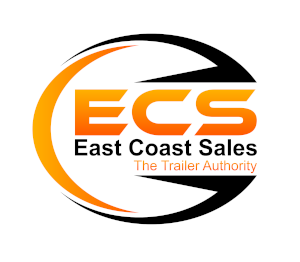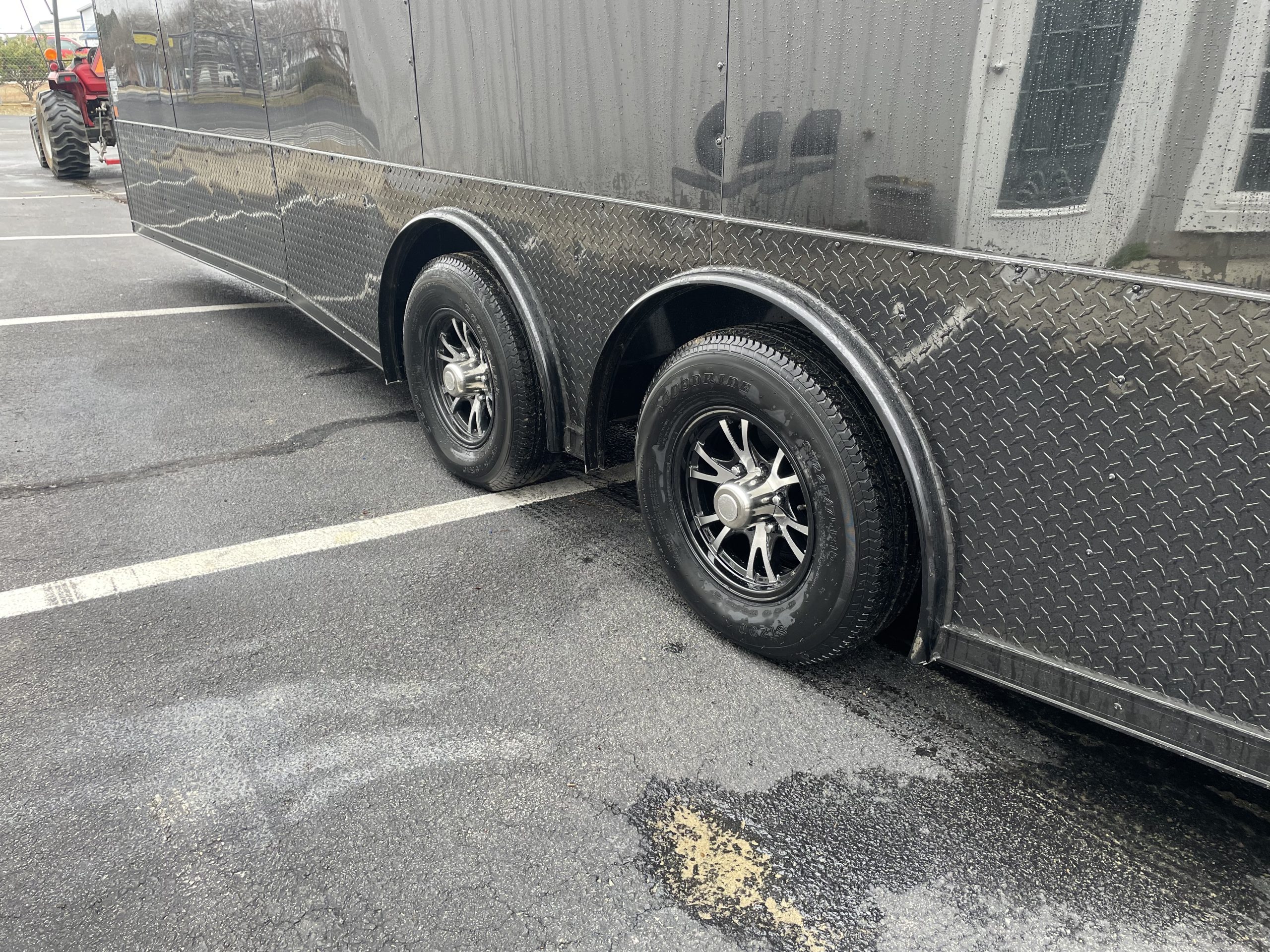trailer brakes, Raleigh NC
Inspecting the brakes on your trailer is crucial for safety, especially when hauling heavy loads through Raleigh, NC, where traffic, road conditions, and weather can vary. A thorough brake inspection ensures that your trailer is roadworthy and reduces the risk of accidents. Here’s a step-by-step guide on how to inspect your trailer brakes:
- Check for Proper Brake Lights and Electrical Connections
Before inspecting the physical components of the brakes, make sure that the electrical connections and brake lights are working correctly.
- Plug Connection: Inspect the wiring plug that connects your trailer’s brake system to your towing vehicle. It should be free from corrosion, fraying, or damage. If your trailer has electric brakes, the connection needs to be secure to ensure proper brake activation.
- Brake Lights: Have someone check if the brake lights are functioning. This is especially important when driving in areas around Raleigh, as visibility is crucial, particularly during rain or nighttime.
- Inspect Brake Pads or Shoes
Whether your trailer uses electric brakes or surge brakes, the brake pads or shoes are key components in ensuring effective stopping power. For trailers with electric brakes, inspect the pads for wear and tear.
For Electric Brakes:
- Remove the Brake Drums: To access the brake pads or shoes, you’ll need to remove the brake drums. Use a wrench to remove the retaining bolts and gently pull off the drum. This step should be done with care to avoid damaging any internal parts.
- Check for Wear: The brake pads should have sufficient material left. If the brake pads are worn down to less than 1/4 inch of material, it’s time to replace them. Look for uneven wear, which could indicate issues like misalignment or malfunctioning parts.
- Clean Pads: Remove any dirt or debris that may have accumulated on the pads. Clean them with brake cleaner or compressed air.
For Surge Brakes:
Surge brakes rely on the trailer’s momentum to activate the braking system. If your trailer uses surge brakes, check the brake shoes inside the wheel hub. Remove the brake drum and inspect the brake shoes for wear, cracking, or damage.
- Inspect Brake Drums and Rotors
If you have electric brakes or disc brakes, the brake drums or rotors should be checked for signs of damage.
- Cracks or Scoring: Check for any visible cracks or deep scoring on the brake drum or rotor. These could indicate overheating or excessive wear, which can affect braking performance.
- Thickness: For drum brakes, measure the thickness of the brake drum. If it’s worn beyond the manufacturer’s specifications, replace it. For disc brakes, measure the thickness of the rotor and compare it to the manufacturer’s recommended minimum thickness.
- Examine the Brake Lines and Hoses
Ensure that the brake lines and hoses are in good condition and free of leaks. These lines transfer brake fluid to the brake components, and any damage can lead to brake failure.
- Check for Leaks: Inspect the brake lines for any signs of fluid leakage, especially around fittings and connections. Leaks can cause a loss of pressure, making your brakes less effective.
- Look for Cracks or Wear: The hoses should be flexible and free from cracks, abrasions, or bulges. If you notice any damage, replace the hoses immediately.
- Test the Electric Brake Controller
If your trailer uses electric brakes, the brake controller in your towing vehicle plays a key role in regulating brake force. Test the controller to ensure it’s functioning properly.
- Adjust Brake Force: Inside your towing vehicle, adjust the brake force using the brake controller and check for a smooth, even application of brakes. If you feel any jerking or uneven braking, the controller may need calibration or replacement.
- Test the Brakes: While parked on a flat surface, apply the brakes manually using the brake controller to see if the trailer’s brakes engage smoothly.
- Inspect the Brake Coupler (For Surge Brakes)
For trailers with surge brakes, the brake coupler needs to be inspected. The surge brake coupler contains the mechanism that activates the braking system when the towing vehicle slows down.
- Check for Smooth Functioning: Ensure the coupler slides easily and is not sticking or binding. If the coupler is stuck or stiff, it might need lubrication or replacement.
- Lubricate the Coupler: Apply a suitable lubricant to the coupler to ensure smooth operation.
- Check Brake Fluid Levels (For Hydraulic Brakes)
If your trailer uses hydraulic brakes, you’ll need to check the brake fluid levels.
- Locate the Fluid Reservoir: Find the brake fluid reservoir (typically near the axle or on the tongue of the trailer).
- Check Fluid Levels: Ensure that the brake fluid is at the proper level. Low brake fluid can cause reduced braking performance and may indicate a leak in the system.
- Inspect for Contamination: Brake fluid should be clear and free of debris. If the fluid looks dark or contaminated, it should be replaced.
- Test the Overall Brake Performance
Once you’ve visually inspected the brakes, it’s time to test the trailer on the road. This is especially important to ensure the brakes are functioning correctly before taking the trailer on long trips around Raleigh or beyond.
- Slow-Speed Test: Drive the trailer at a low speed (around 10-20 mph) and apply the brakes. Check for smooth, responsive braking. If the trailer pulls to one side or the brakes feel uneven, there may be an issue with the braking system.
- High-Speed Test: If everything checks out at low speeds, perform a more thorough test at higher speeds (but still in a safe area). Ensure the brakes engage evenly and stop the trailer effectively.
- Regular Maintenance and Professional Help
Even with thorough inspections, it’s important to have your trailer brakes checked regularly by a professional mechanic or trailer service provider, especially if you’re frequently hauling heavy loads in Raleigh, NC. Regular maintenance will ensure your brakes perform at their best, reducing the risk of brake failure during trips.
Final Thoughts
Trailer brake inspections are essential for safe towing, particularly on busy roads in and around Raleigh, NC, where traffic, weather, and road conditions can pose challenges. By regularly checking the brake components, electrical systems, and hydraulic systems, you can ensure that your trailer remains safe to use and that your stopping power remains reliable.
If you’re not comfortable performing these inspections yourself, or if you’re unsure about any aspect of the brake system, it’s always a good idea to have your trailer serviced by a local professional to ensure maximum safety and performance.
When you need the very best trailer and only want 5 star customer service come visit us at East Coast Trailer Sales. We are the triangle’s premier trail sales specialist. We can help you select the perfect trailer for your needs and get you on the road quickly. To learn more visit us online at https://www.eastcoastsales.com/ or check out our social media at https://www.facebook.com/eastcoastsalesraleigh . To browse our inventory, please visit https://www.eastcoastsales.com/inventory/ .
To speak to an expert, call us at (919) 661-1045 today.

